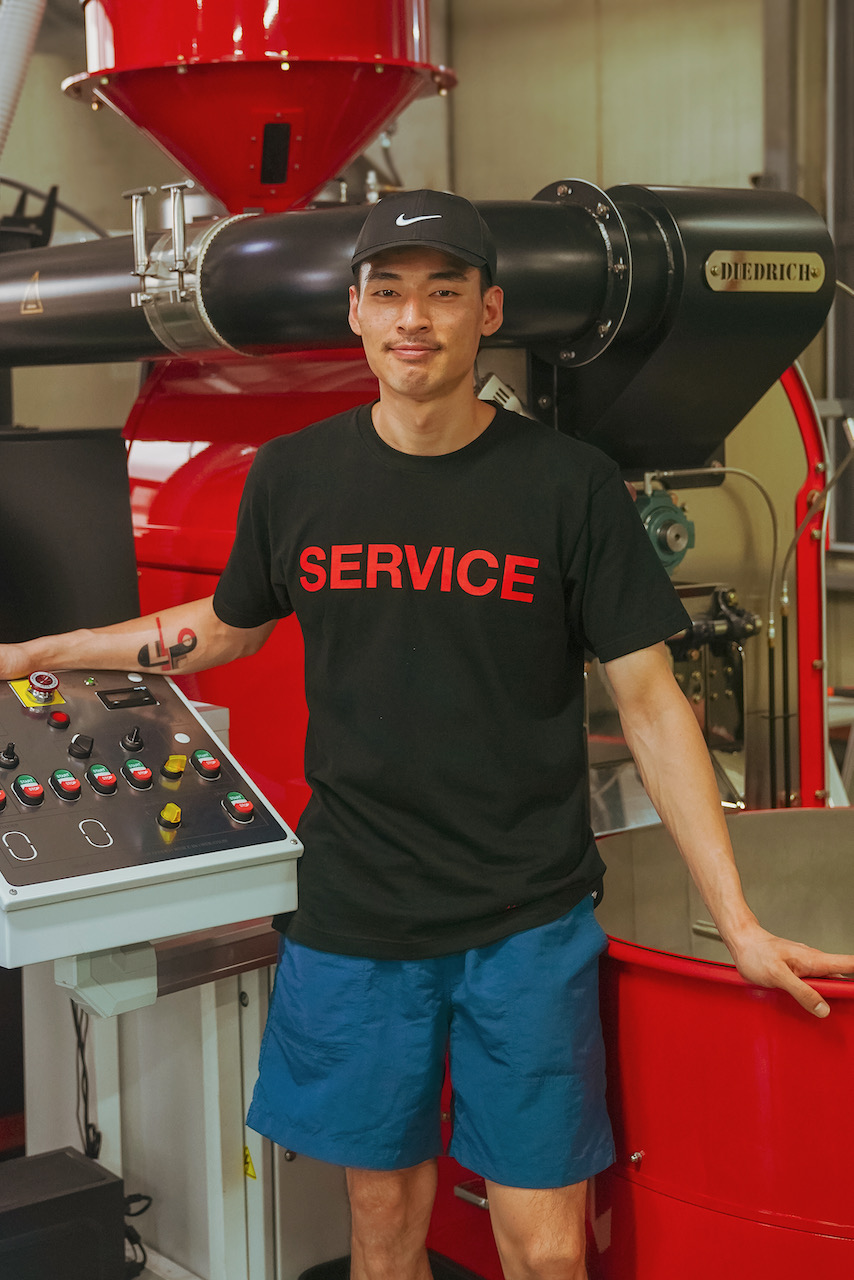
Feeling happy without sacrificing anything- a positive cycle created by coffee
WERK ROASTERS is a roastery and cafe founded in 2018 in Busan, South Korea. WERK ROASTERS was co-founded by four people. What has been the path taken by the four co-founders? We speak with one of the founders, Mr. Hyeon-Dong Park.
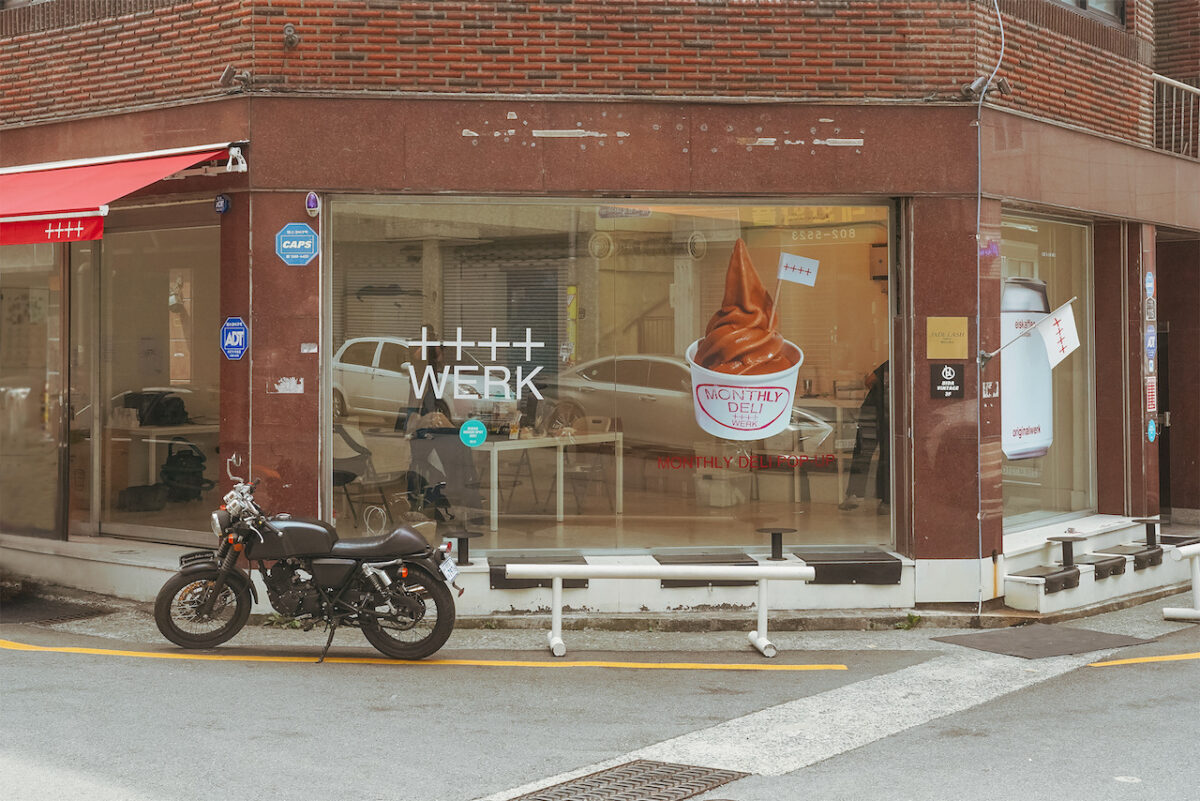
A specialty coffee shop that stands out in a fiercely competitive area
WERK ROASTERS is located in the Jeonpo café district where many of Busan’s major cafes are located. In the past few years, about thirty cafes have opened, one after another, and as such the area has even been called “Jeonpo Café Street.” The area is a fiercely competitive area for cafes.
WERK ROASTERS is closed on Sundays. Hyeon-Dong states, “Ever since we established our company, I’ve been so busy thinking about the business when the store is open, I wanted to cherish the time on
Sundays drinking coffee without thinking about anything else.”
Despite emphasizing the relaxed management style, the company is making steady progress including the expansion and relocation of the roastery in April 2021, which was attached to the cafe.
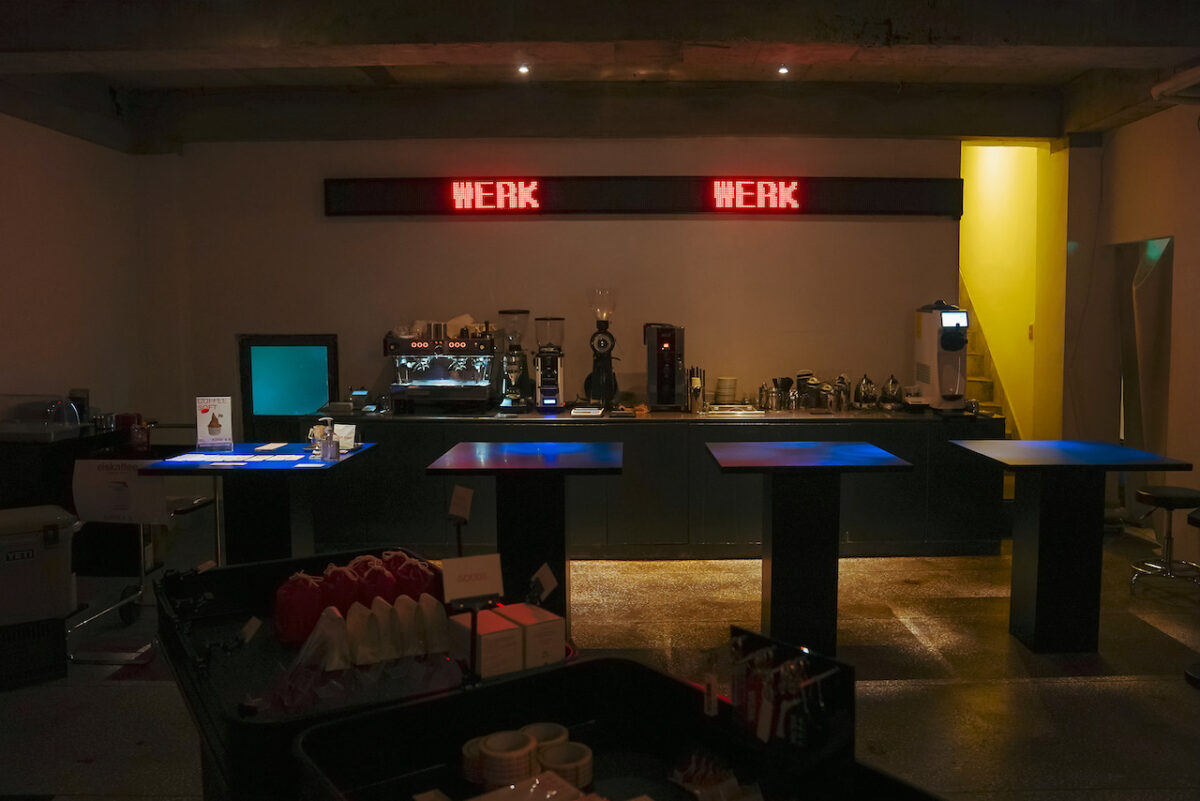
Coffee wasn’t the main attraction at first
Hyeon-Dong entered the coffee industry fifteen years ago at the age of twenty. It was also the same time specialty coffee was first introduced to South Korea, in the mid-2000s.
“In South Korea, the cafe space was the focus of attention and the people’s attention was not for the coffee. Fancy drinks and sweets were served while the staff wore uniforms that looked like would become popular any second and looked of something out of a TV drama series. Even the coffee machine used then was simple- one that brewed coffee with one single touch. I didn’t have a passion for coffee in the beginning, but as soon as specialty coffee started to be known in South Korea, I started to familiarize myself with the concept through coffee-related magazines and online.”

According to Hyeon-Dong’s experience, cafes and specialty coffees in South Korea were being recognized at a faster pace than they were in other countries. On the other hand, he points out that the market had expanded without people being able to catch up, before having a proper understanding about specialty coffee.
“In South Korea, the market for coffee had only been around for a short period of time. Not only was the coffee market new, but the specialty coffee entered the market at the same time. People were driven by marketing without having a proper understanding of the benefits of coffee. There was a gap between what the experts said was good and what the average customers thought good. I think that in Japan, the culture of enjoying coffee was already prevalent to some extent, so people were able to judge whether they liked or disliked the new concept of specialty coffee.”

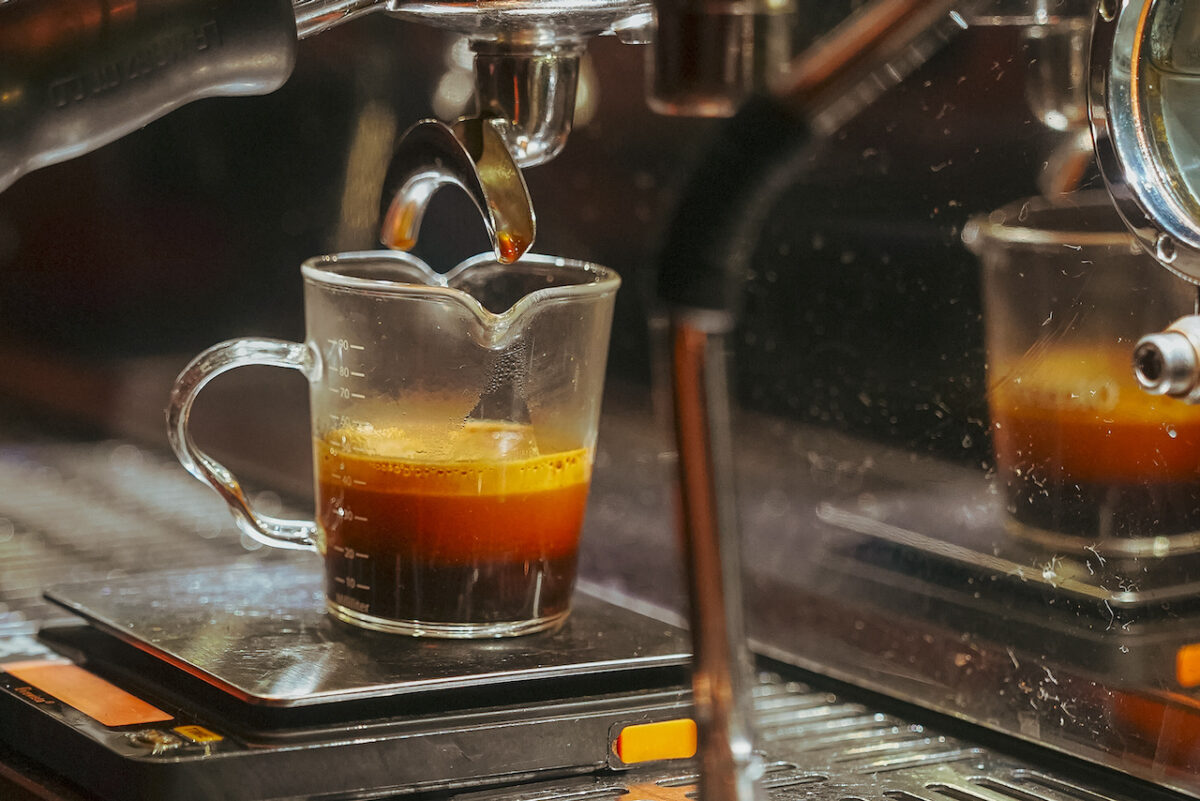
Hooked by specialty coffee
Around the time, Hyeon-Dong had to complete his compulsory military service required by South Korea. Though his enlistment in the military lasted for two and half years, his interest in specialty coffee continued to grow during this period. As a graduate of the Reserve Officers’ Training Corps (ROTC), he enlisted as an officer which permitted him to go home and go out, unlike other service members. Therefore, on his days off, he was able to visit coffee expos and famous cafes.
“In the military, I would order and read all sorts of magazines and books. I didn’t study academically or professionally, but when I had the time, all I read about was coffee. The more I learned about the wide and deep world of coffee, the more I felt it was a highly specialized profession.”
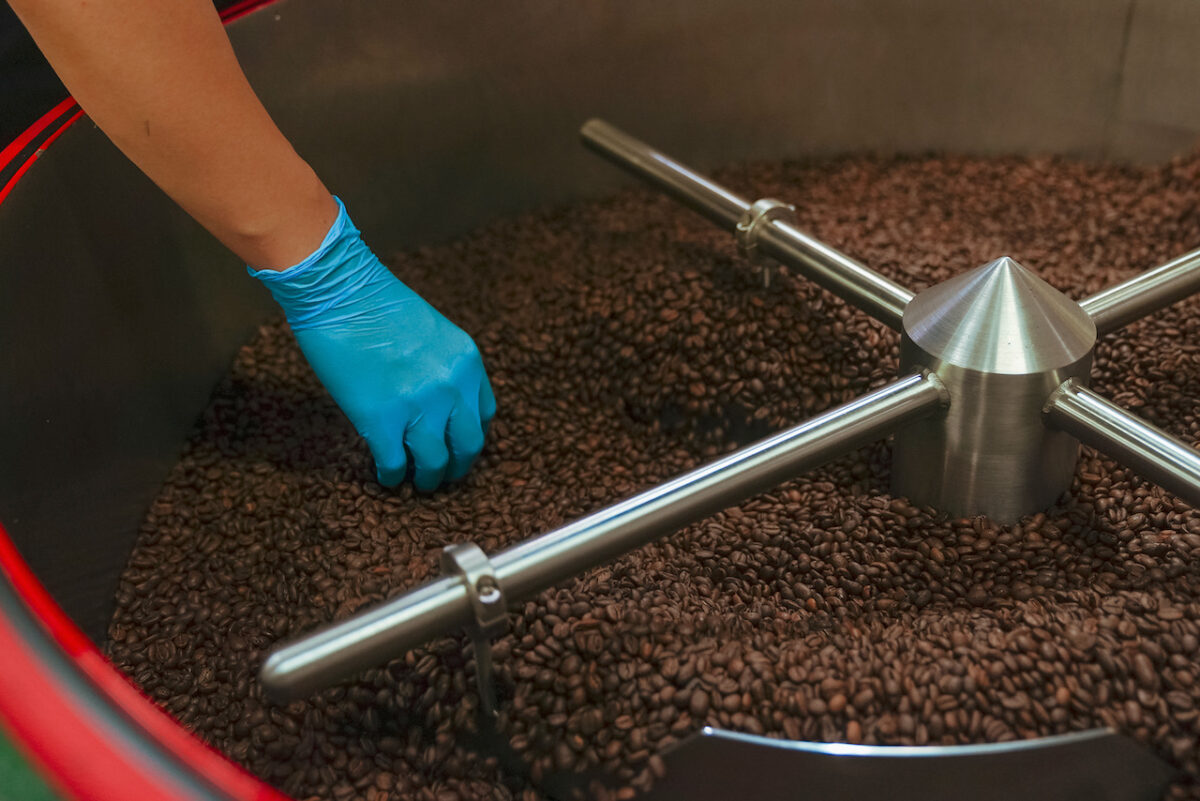
After he finished military service in 2013, he decided to join MOMOS COFFEE, a pioneer of specialty coffee in South Korea. It was there that he was able to see up close how people involved in the specialty coffee industry worked and learned how different it was from the cafe industry he had been involved in.
“I thought the people in the specialty coffee industry were cool, behaving freely and happily while carrying out highly specialized work at the same time, unlike ordinary business people. It was also cool to see they were creating the boom with their own hands. They were holding conventions, visiting coffee origins, and starting direct trade. All of these were something that I hadn’t seen in the cafes that I worked in previously.”
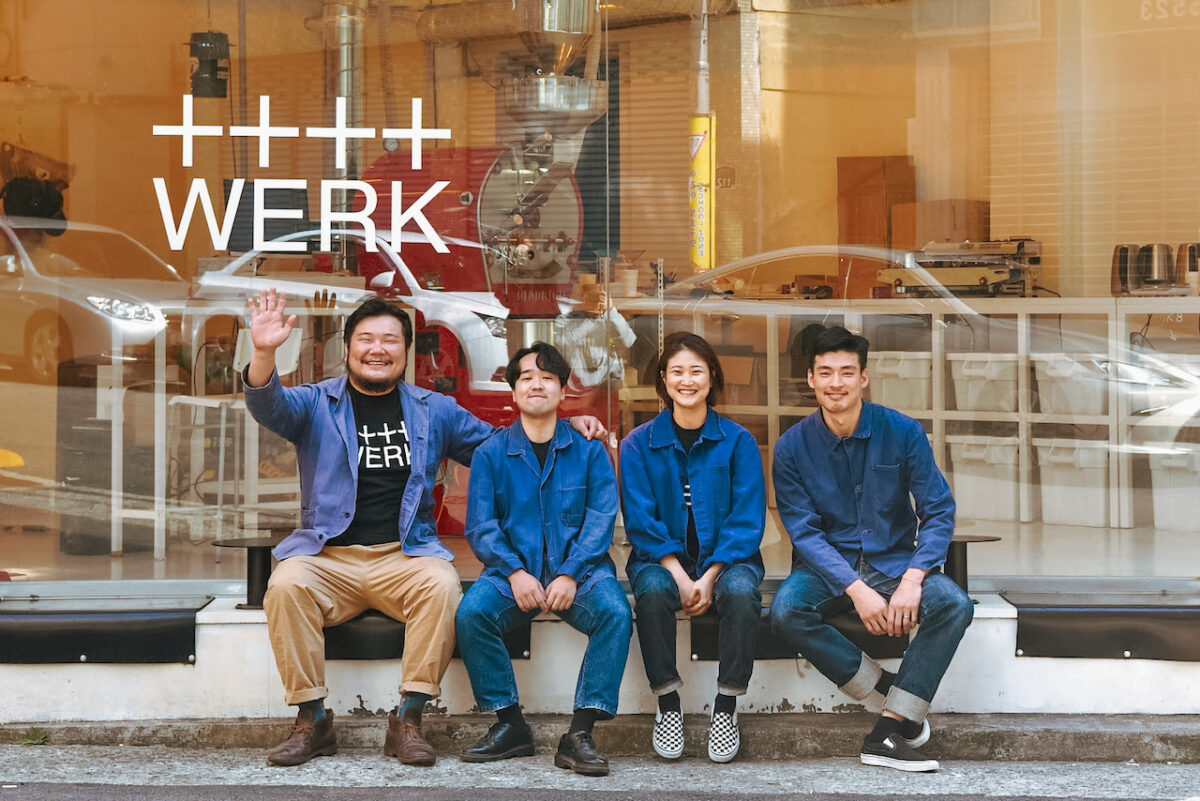
Four co-founders playing different roles
After working at MOMOS COFFEE for five years, Hyeon-Dong chose his three friends to help him start the business.
Hyeon-Dong states, “After I left MOMOS COFFEE, it was natural for me to think about establishing my coffee shop. But I didn’t have the confidence to do it alone, so I approached the right people around me. When I mean the ‘right people,’ I mean those who are good at what they do, which I thought was necessary to grow the company.”
These people included Chan Hee who has a strong background in marketing; Seok Bong who has a strong background in finance and company management; Sang Yong who has experience in interior designs; and then Hyeon-Dong himself.
In 2021, three years after its founding of the shop, the company opened a roastery in another location in addition to the cafe. The current team members consist of nine people: four roasters including Hyeon-Dong, three store members, and two administrative members.
Although he says, modestly, they could continue the work despite their inexperience in many aspects but their achievements alone have shown steady growth.
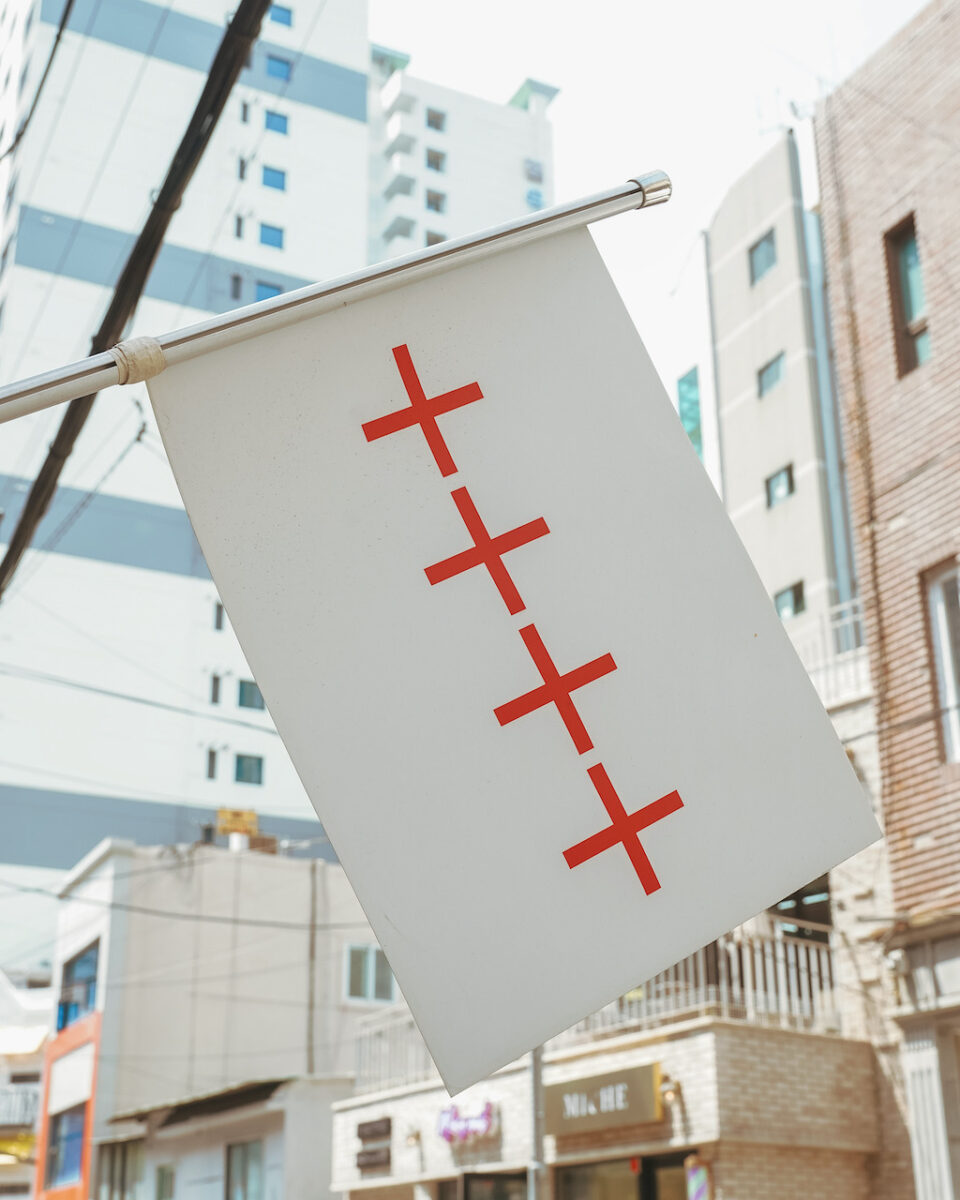
Living by the philosophy, “live positively”
Behind WERK ROASTERS’s growth is the expansion of the specialty coffee market in South Korea. The company gives the impression that there is more to it than offering products and services; they are committed to the company vision.
Hyeon-Dong states, “We spent the most time thinking of the mission, about the organizational culture, and creating a system that would sustain the business. We spent time talking about the lifestyle we each wanted and the way we wanted to live, which was first discussed before the discussion on how we wanted to operate the business. Since we were starting a company rather than an individual store, we wanted to make sure that everyone was looking in the same direction no matter how many people would join later on.”
All of WERK ROASTERS’ operating decisions, including the minor details, are based on the mission of WERK ROASTERS. What was the concrete mission that the four of them agreed as a result of their discussions?
Hyeon-Dong states, “After searching for a concept that would best unite the core values of the four of them, they came up with the policy of ‘being positive.’ We all agreed on the idea, ‘Let’s create a life that is more positive’ and ‘Let’s change life more positively.’”

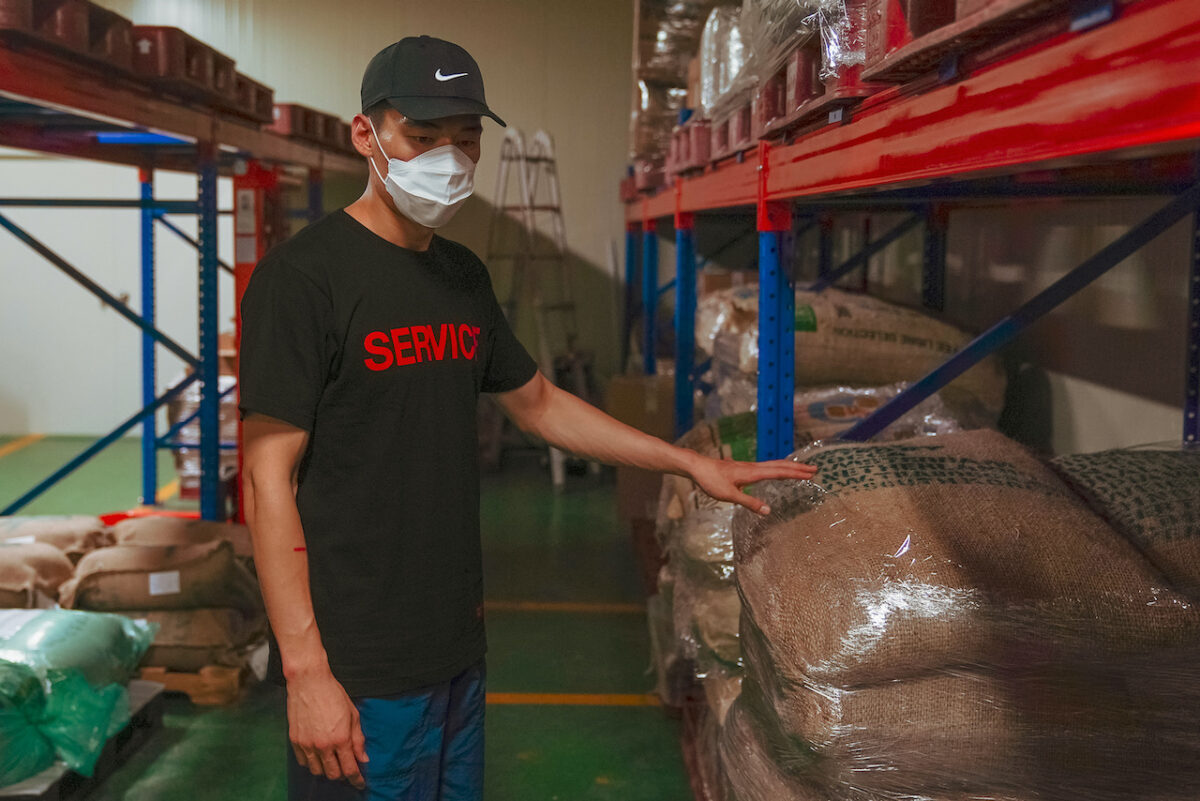
Synergy for continuity
Although he was just thirty-two years old at the time of the company’s founding, Hyeon-Dong has had an ability to focus on many things at once- co-founding the company with other three founders, looking ahead the market, and understanding the importance of the mission. How did he come to having such a balance in his way of thinking?
Hyeon-Dong states, “After being in the coffee industry for a long time, I began to think about how important it is to continue the work. I had been working in the coffee industry just because I personally liked it, but to continue the business in the coffee industry, we have to keep generating revenue. I don’t want to live for money, but I also don’t want to just keep doing what I want to do. To make both of these happen, I gathered a group of people who have accumulated strength in their respective professional fields. I thought that if everyone was a specialist in some areas, then each individual could exercise strengths in their area to make the company sustainable.”
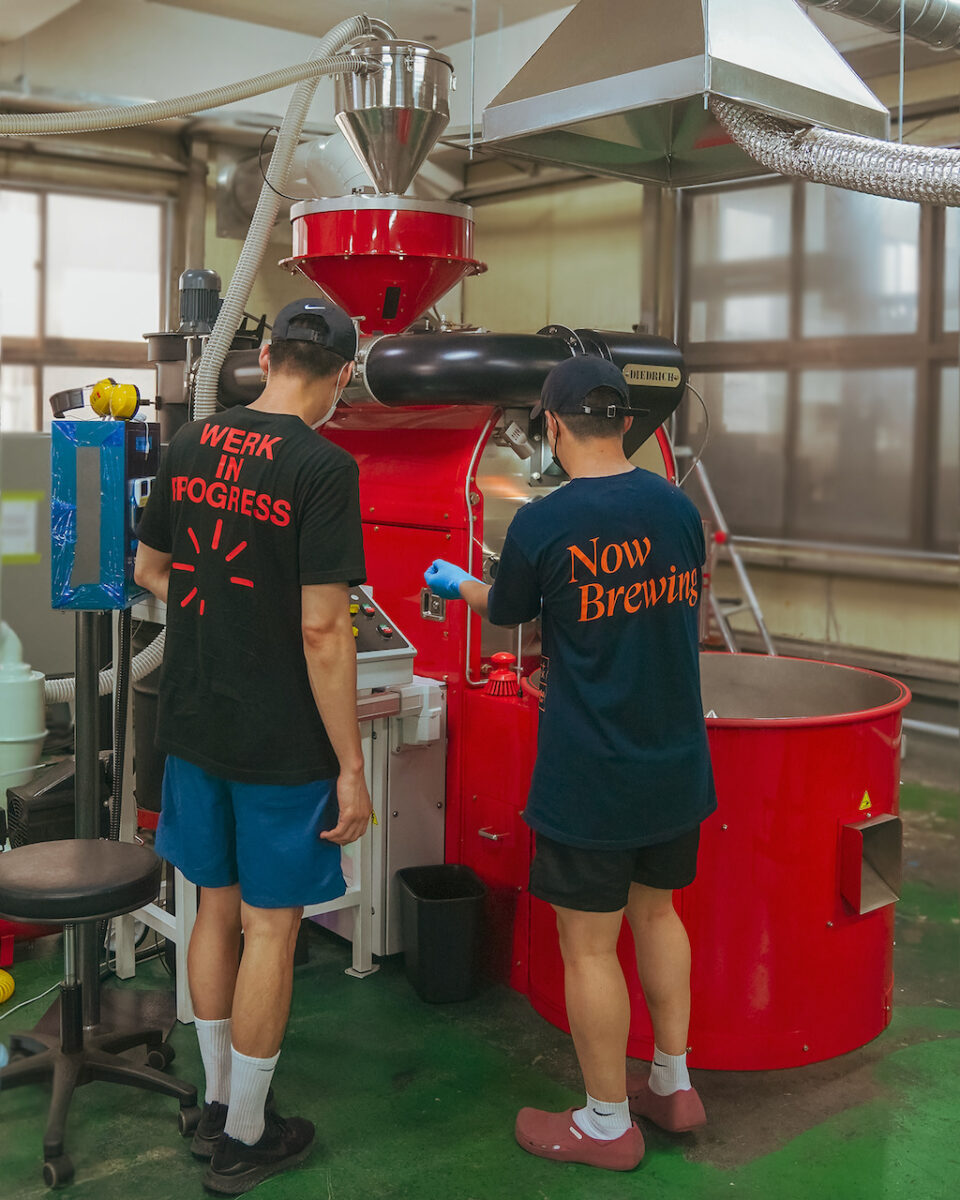
It may seem at first that it was a practical idea, but Hyeon-Dong also wanted to create a system where his area of focus would be coffee.
“For me to continue making good coffee, I needed someone to manage the money and someone to communicate the coffee I roast. I don’t have either of these skills.”
As among the co-founders, each member at the store also follows this approach. Offering their professional insights to each other to enhance the work, synergy is brought out.
Hyeon-Dong states, “In other workplaces and also when I was in the military service, I found organizations work best when people are working together organically. The organization grows faster if they are aligned creating synergy; the speed of the growth is faster rather than one person taking the lead. However, it is not an easy task. I sometimes have seen, synergy can’t be achieved due to an excessively hierarchical system and workload. At WERK ROASTERS, four members were working from the beginning. Because the duties were separated naturally, while having good cooperation among us, we were able to create the system where each person’s strengths compensated for each other’s shortcomings.
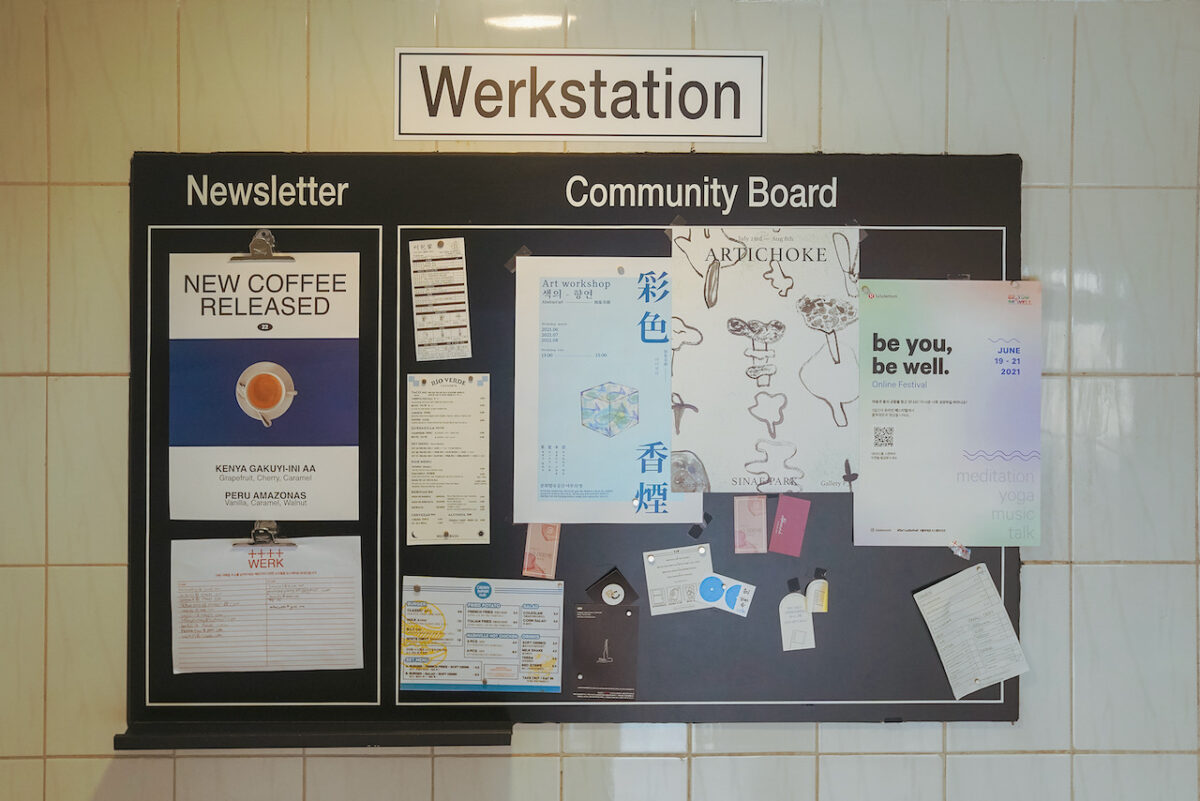
WERK ROASTERS is also organizing joint projects with artists to provide more synergy with the company’s mission.
Hyeon-Dong states, “We hold exhibitions by artists on the walls at the roasting place downstairs and on the second floor where we only place simple chairs. We have asked local indie bands, famous singers, rappers, artists, photographers, tattoo artists, and so on, to perform or do an exhibition. Originally, most of them were mainly our customers. When we ask artists to collaborate with us, we try to make sure that the experience of collaboration is positive for everyone.
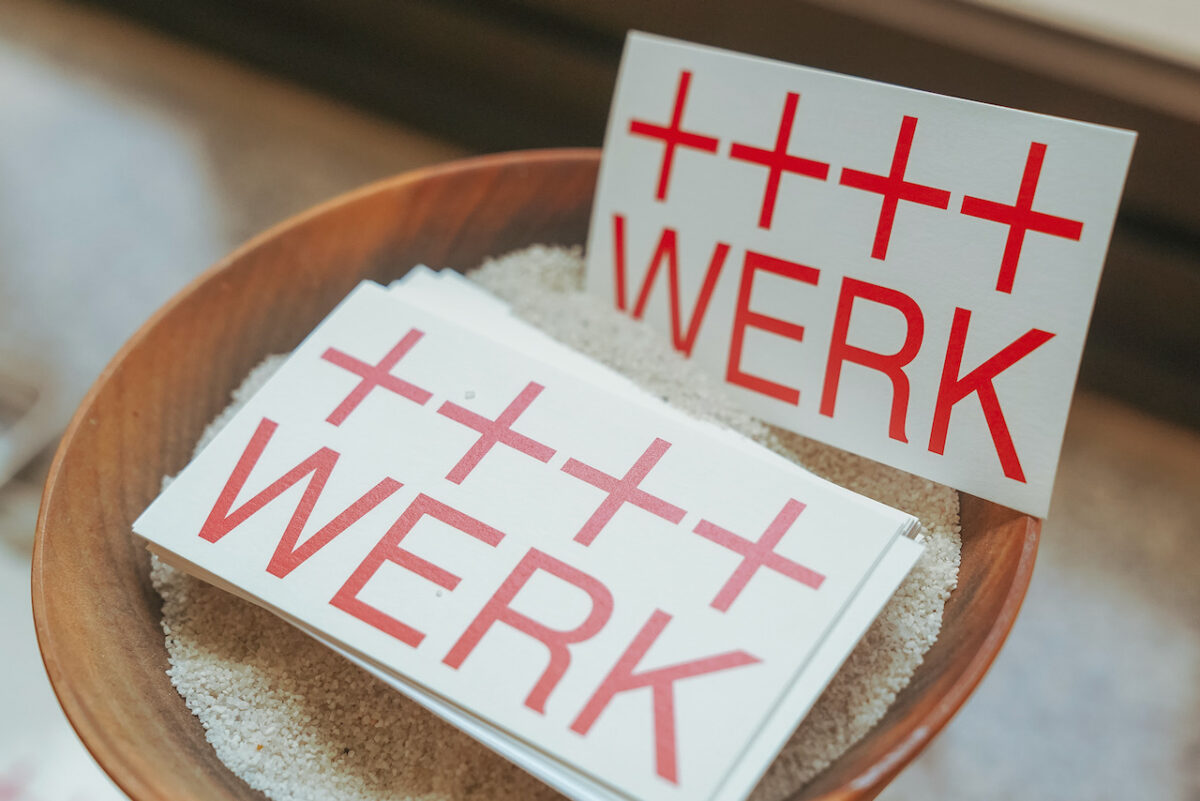
If Hyeon-Dong had started the business by himself, the situation may have been different. Even if he had been able to successfully establish the business on his own, he may had had to devote all of his time to the company.
Hyeon-Dong states, “Giving it all up wasn’t the way we wanted to live. I think it would be better if we could maintain a work and life balance that complement each other rather than making one extreme choice. Having four people as co-founders means that we can get four times as many contacts and help from others. I am grateful that we have been able to create this situation, rather than having to work very hard to the extreme.”
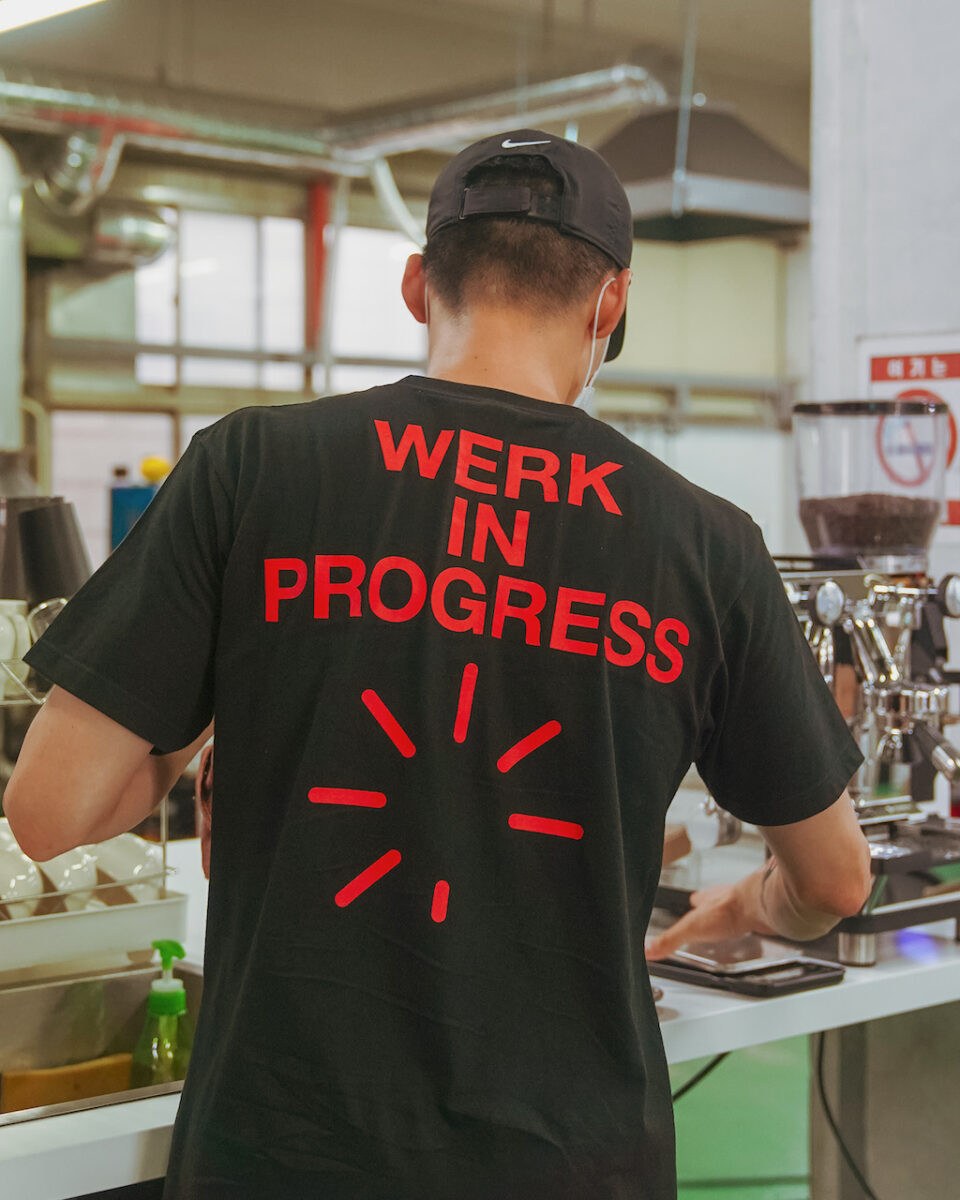
Moving toward to a future filled with potential rather than unimaginable future
The more I listen to them, the more I realize that the company’s goal is focused on how the company wants to be. They set the goal to live a positive life.
“The more we look at a distant goal, the more distant and impossible it seems. But if you look closer to the present moment and take one step in the right direction, you will realize that the distant future that seemed so impossible, is getting closer. I had lived my life in this way during the process of learning about coffee and mastering the art of roasting.”
The ultimate success of the company depends on how positive the people themselves can be. It is simple to say it but it’s not easy to put it into practice operating a business. It’s easy to get caught up in short-term sales results and reputation. It is clear to see from their opening hours that they have maintained their vision in running the business.
“We don’t open on Sundays. If we think about making profits, it wasn’t easy to give up this part of weekend sales. However, we concluded that it would make our life more positive if we could use the strength we gain on weekends to make more sales on weekdays rather than sacrificing our weekends. In retrospect, I believe that such a way of working style has resulted the growth of our staff. If each staff’s growth leads to greater added value, it’s possible to generate more sales during weekdays than we would do from weekends.”

In addition, he says that by pursuing the philosophy of positivity, he has been able to look at other things that are happening outside the company.
Hyeon-Dong states, “I naturally began to think about how to take care of coffee origins and consumers. Our goal as a company is to make a profit so that everyone can be prosperous, but that is not the only way to have a positive life.”
Originally written in Japanese by Yuka Maekawa.
MY FAVORITE COFFEE
“On weekends, after sleeping well, until noon, I make a cup of filtered coffee. I feel happy in this moment with my coffee, not thinking about anything. It helps me regain the time I felt was lost to other things. I feel I can stay positive thanks to these moments.”

WERK ROASTERS
- [Open]
- Mon-Fri: 13:00-20:00 / Sat: 12:00-20:30